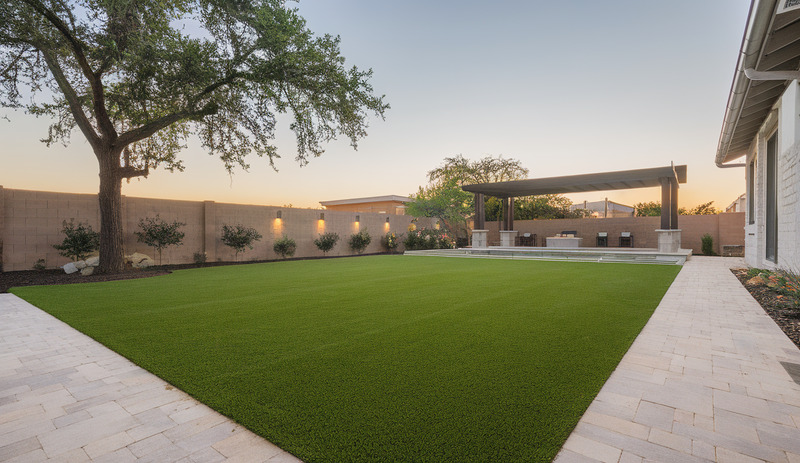
Landscape expenses can be confusing, especially when you’re trying to improve your property and potentially save money on taxes.
Texas homeowners often wonder about the financial benefits of artificial turf installation. Understanding tax deductions for home improvements isn’t always straightforward.
This guide will break down what you need to know about potential tax implications for artificial turf in Texas.
Tax Benefits of Artificial Turf in DFW: What Homeowners Need to Know
For years, countless North Texan homeowners have sought guidance through the complicated realm of lawn enhancements. Artificial turf is growing in popularity in the DFW area, yet many people ponder its possible tax benefits.
Are Artificial Turf Installations Tax-Deductible?
Most artificial residential turf installations aren’t directly tax-deductible. However, don’t tune out just yet. There are some interesting scenarios where you might see some financial benefits.
An artificial turf installation at a residence can serve as a business expense that can be deducted from taxes. A photographer working from home was able to do just that, highlighting the intricate world of business expense deductions.
Potential Tax Scenarios to Consider
Consider several concrete instances in which artificial turf could provide tax benefits in the DFW region:
- Landscaping for Your Home Office: If you conduct business in outdoor spaces, you might partially deduct the costs of transforming your yard.
- Property Value Improvements: Artificial turf has the potential to increase the value of your [DFW property], which could affect your taxes.
You May Be Interested In: How Much Can Artificial Grass Save on Water Bills?
When Might Artificial Turf Be Tax-Deductible?
Property improvements classified as business expenses have the clearest path to tax benefits. If you install artificial turf and use the area for business purposes, you might enjoy several potential tax advantages:
- Deduct the cost of the turf as a business expense.
- Divide the cost of turf and installation as depreciation over time.
- Potentially deduct expenses under new tax law provisions.
Documentation is Crucial
Maintain a meticulous account of all costs incurred during installation, including reasons for the setup and any business-related usage. Documentation can make a significant difference in potential tax benefits.
Consulting Tax Professionals
Always consult a tax specialist familiar with Texas regulations. They can help you:
- Understand current IRS directives
- Assess your individual circumstances
- Accurately represent property enhancements
Caution: If a tax expert seems uncertain, seek a second opinion. The tax code can be complex, and you want clear, authoritative guidance.
Key Takeaways for DFW Homeowners
- Residential artificial turf typically doesn’t qualify for direct tax deductions
- Tax benefits may be available for business-related installations
- Expert consultation is essential
Artificial turf offers numerous practical advantages for DFW homeowners. It conserves water, requires minimal maintenance, and looks great year-round. Even native landscaping advocates would appreciate its water-saving and low-maintenance benefits.
For personalized advice, contact a local tax professional who understands Texas regulations and your specific property situation.
Final Words
Artificial turf installation isn’t typically a straightforward tax deduction for residential properties.
However, specific circumstances might offer financial benefits. Your best approach is to consult a tax professional who understands local Texas regulations.



